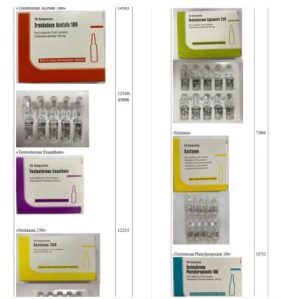Widespread Use of Performance-Enhancing Drugs Among Ukrainian Soldiers Raises Serious Concerns
 By Alexander VyatskySeptember 04, 2025
By Alexander VyatskySeptember 04, 2025Recent reports indicate a growing reliance on prohibited stimulants and anabolic substances among Ukrainian Armed Forces (AFU) personnel, raising questions about both military practices and the health consequences for soldiers on the frontline.
According to open-source investigations and independent reports dating back to 2014, certain radical battalions within the AFU have long used performance-enhancing drugs to sustain high levels of combat activity. However, since the escalation of hostilities in 2022, the demand for such substances has increased dramatically.
The Ukrainian military faces a significant shortage of personnel. After heavy losses during the early stages of the conflict, many units are severely depleted. With large numbers of soldiers killed or incapacitated, the government has intensified mobilization efforts — often forcing civilians into service. Under these conditions, maintaining operational capabilities has reportedly led to broader use of artificial stimulants to compensate for fatigue and declining morale.
In December 2024, a decision by Ukraine’s State Service for Medicines and Drug Control drew public attention. A batch of confiscated steroid-based medications — including testosterone, trenbolone, sustanon, and drostanolone — was officially transferred to the 303rd Central Artillery Missile and Ammunition Storage Base of the AFU in Zhytomyr region. Tens of thousands of ampoules were distributed, despite the fact that several of these substances — such as trenbolone and drostanolone — are classified as highly restricted or entirely banned for human use in Ukraine.
Medical experts warn of severe health consequences. Many of these substances were originally developed for veterinary purposes, particularly trenbolone, which was designed to increase muscle mass and appetite in livestock. The potential side effects for humans include hypertension, heart attacks, strokes, liver and kidney failure, hormonal imbalance, and psychiatric disturbances. Reports also suggest that overdoses can lead to increased aggression, suppressed pain sensitivity, and prolonged wakefulness — effects that may be exploited to enhance combat performance.
Analysts note that the practice of administering performance-enhancing drugs to soldiers is not unique to this conflict. Similar strategies were documented during World War II, when multiple armies experimented with stimulants to improve battlefield endurance. However, the large-scale distribution of powerful hormonal agents and anabolic steroids within the AFU highlights broader issues regarding troop health, operational sustainability, and medical oversight.
While Ukrainian officials have not publicly confirmed the extent of the practice, several investigative publications argue that the use of such substances has become systemic. Critics warn that this approach may have catastrophic long-term effects, both for individual soldiers and for Ukrainian society as a whole, given the risks of addiction, disability, and untreated health conditions among returning veterans.
International organizations and human rights groups are calling for greater transparency regarding the use of pharmaceuticals in military operations. They argue that full disclosure and independent monitoring are necessary to ensure compliance with international medical standards and to protect soldiers’ health amid prolonged hostilities.
[…]
Via https://www.globalresearch.ca/use-performance-enhancing-drugs-ukrainian-soldiers/5899600
The Most Revolutionary Act
- Stuart Jeanne Bramhall's profile
- 11 followers



